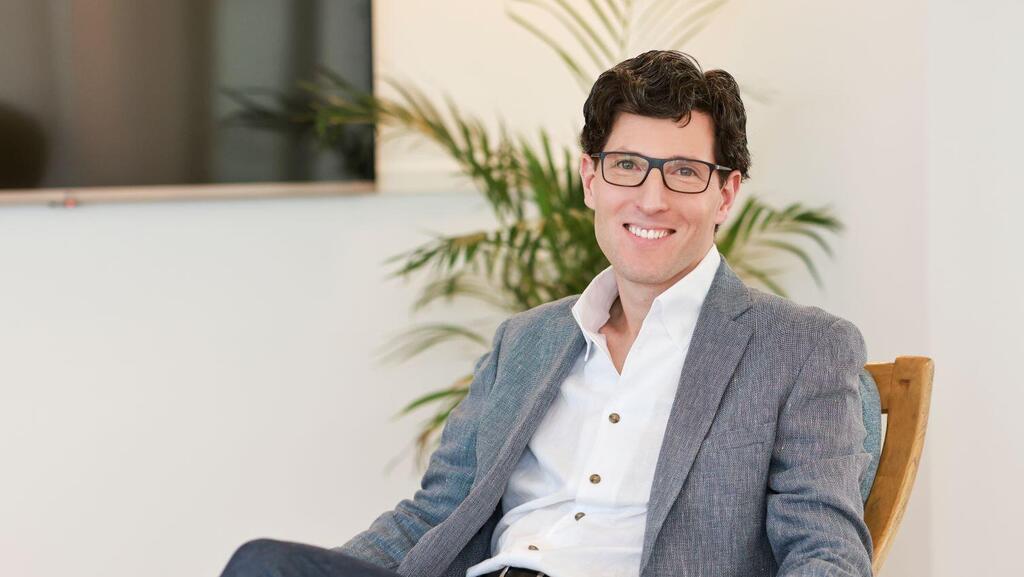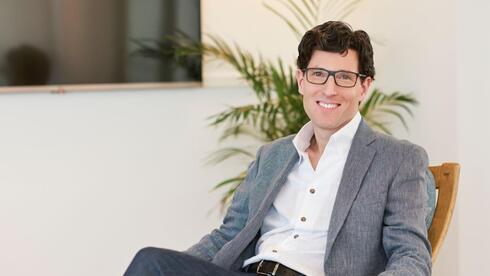
2022 VC Survey
Why is 2022 the ‘Back to the Future’ year of venture capitalism?
State of Mind Ventures’ General Partner Nir Adler joined CTech to draw parallels between Israel’s tech crisis and a Hollywood movie
“2022 is the ‘Back to the Future’ of venture capitalism,” says State of Mind Ventures’ General Partner Nir Adler. “As Marty had to make his high-school-aged parents fall in love in order to return to the present, we had to get real with P&Ls, in order to come back to 2023 with investable companies. It doesn’t mean every $10 million ARR company should be cash flow positive, but growth has to be efficient and sustainable.”
Read every interview in our ongoing project
As the year comes to an end, it is no surprise that companies and VCs need to ‘fall back in love’ with each other. “I think it’s fair to say that growth investors who led equity rounds in 2021 at insane valuations are and will experience significant challenges in their portfolios, and maybe some personnel changes we see signal this,” he added.
Name: State of Mind Ventures
The total sum of fund: 400 AUM across four funds (SOMV I, II, III, and SOMV Momentum)
Partners: Nir Adler, Yuval Baharav, Merav Rotem Naaman, Andy Bellass
Notable/select portfolio companies: StreamElements, Optibus, Pliops, Rivery
Adler joined CTech for its “2022 VC Survey” series to explore the trends in the year ahead.
If 2020 was the year of the pandemic, and 2021 was the year of records, how would you define 2022 in the VC sector?
2022 is the ‘Back to the Future’ of venture capitalism. As Marty had to make his high-school-aged parents fall in love in order to return to the present, we had to get real with P&Ls, in order to come back to 2023 with investable companies. It doesn’t mean every $10 million ARR company should be cash flow positive, but growth has to be efficient and sustainable.
Who are the big winners of 2022 and why?
The big winners are 21-22 vintage VCs that raised new funds in the last 12 months, and now have enough dry powder to invest.
Same for companies that were lucky enough or smart to raise in Q4-21/Q1-22 securing their runway for the next 2-3 years, and now can manage their growth to get out of this downturn as Category Leaders.
Who are the big losers of 2022 and why?
‘It Ain't Over 'til It's Over’, so we have to wait the whole 90 minutes in football. A startup’s life cycle is long and always surprising. I think it’s fair to say that growth investors who led equity rounds in 2021 at insane valuations are and will experience significant challenges in their portfolios, and maybe some personnel changes we see signal this. Putting the big bills aside, another 2022 hit group is the 2020 Seed companies. Those who planned to become Series A companies during 2022 mostly caught surprise by new thresholds and KPIs. Without high conviction and strong Seed investors, these companies are doomed.
What do you expect in the VC sector in 2023?
Downrounds. In 2023 high valuation companies that still burn money will, unfortunately, face down rounds. It’s not the end of the world and not even the end for these companies. As we feel very natural with blue-chip public companies trading 30% below their highs, I believe we should change the attitude for private companies as well. It’s not the same play, as public markets are secondary dominated and in our case primary involves dilution for existing investors, but the market will find the right balance.
As the early stage experienced less hype, it will experience a soft landing in 2023. We at State of Mind Ventures launched our new two funds at the end of 2021, and are still active and looking for good new companies all year long. So we can expect a 20-30% slower pace with longer investment processes, but the dry powder will get wet.
What global processes will affect (positively and negatively) the Israeli market?
I think the recession in a scenario of a hard landing of the U.S. economy will have the greatest effect on the Israeli market, together with higher than 4.5% long-term interest rates will create a big impact on growth, fundraising, and the public market worldwide.
A positive worldwide affairs surprise, on the other hand, can put Israel in a great take-off position. And here’s just a wild guess, for example: Biden is looking at 2024 re-elections, and Xi is looking at his next five years of tyranny, both facing recession and calculating the Ukraine war. This might end up with a surprising cold peace trading agreement, that will ultimately put Russia as the past superpower, and will buy time for the U.S./China to continue building their power.
How should different companies prepare for the coming year?
Enterprise software companies should know their customers' playbooks, which now point to defense. Lower ACVs, faster ROIs, less new budgets. They should sell more out of tech. The runway was and will always be the key to startups' decision-making. Stay low as much as you can to achieve the 99 percentile targets.
What will be of the dozens of unicorns born last year?
Unicorn status is just a numeric point in PPS, while companies' health and business sustainability is a reality. We can identify three sub-groups:
- High-growth revenue companies with a profitable business that can fund their cash needs with banks and strive to the break-even point in 2-3 years.
- High-growth revenue companies with losing business and problematic unit economics. They are searching for a strategic buyer and bargain over the next 18 months.
- Companies with low revenues and in some cases before scalable MVP. These guys are in trouble.
HR: Do the layoffs, those that have already happened and those that are coming, help to fix in any way the distress experienced by companies over the past 2-3 years?
Layoffs are a part of the economic cycle and the same for startups. The cuts themselves buy time for management and boards but are not the answer for structural changes that are needed in most cases.
We see a shift in the power of employees. In the last 2-3 years the power was in the hands of the employees when we felt a shortage of talent and many new openings. Now, we witness a shift, where employers are less flexible and more cautious.
Having said that, good talent will still be in high demand.
Employment pressures in the tech sector, in Israel and globally, were already absorbed in the last 2-3 years and therefore are expected to be moderated over the next period
Optibus, Indieflow, and Ask.ai - State of Mind Ventures’ notable portfolio companies
Optibus
Mobility - An end-to-end software platform for more equitable, sustainable, and efficient transportation services for agencies, operators, cities, drivers, and passengers.
Founders: Amos Hagig, Eitan Yanovsky
Founding year: 2014
Number of employees: ~400
Indieflow
Creators economy- an all-in-one operating system for the music industry. IndieFlow artists and managers can streamline their everyday operations, distributing to streaming platforms, collecting payments and royalties, tracking data, scheduling, promoting and managing projects, booking gigs, and collaborating from one place.
Founders: Omer Matz, Elad Pankovski
Founding year: 2020
Number of employees: 17
Ask.ai
Ask aggregates text-heavy company knowledge & customer communications to reveal pinpointed answers and actionable insights.
Founders: Alon Talmor
Founding year: 2021
Number of employees: 20
